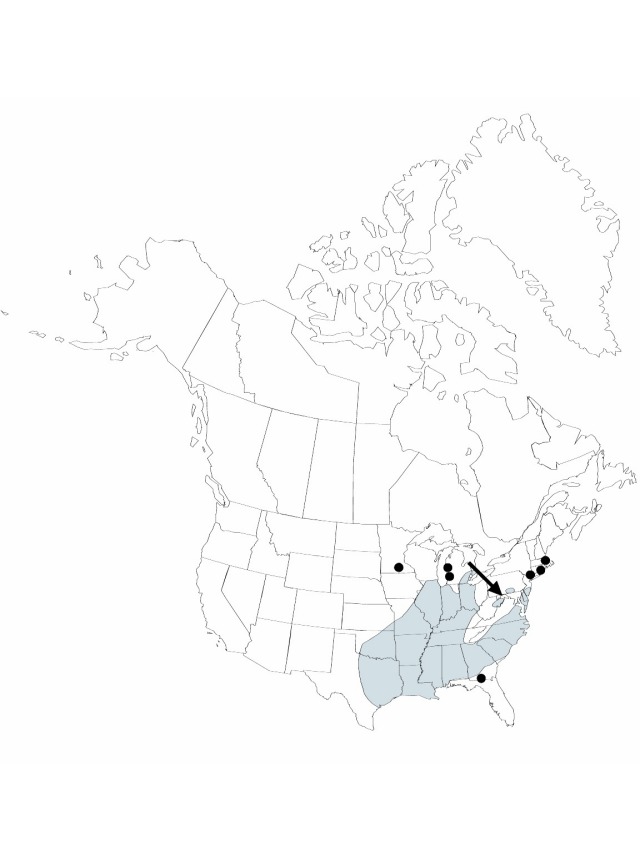Difference between revisions of "Juncus brachycarpus"
in A. Gray,Manual of Botany of the Northern United States (ed. 5) 542. 1867.
FNA>Volume Importer |
FNA>Volume Importer |
||
| Line 31: | Line 31: | ||
-->{{#Taxon: | -->{{#Taxon: | ||
name=Juncus brachycarpus | name=Juncus brachycarpus | ||
| − | |||
|authority=Engelmann in A. Gray | |authority=Engelmann in A. Gray | ||
|rank=species | |rank=species | ||
| Line 46: | Line 45: | ||
|publication year=1867 | |publication year=1867 | ||
|special status= | |special status= | ||
| − | |source xml=https://jpend@bitbucket.org/aafc-mbb/fna-data-curation.git/src/ | + | |source xml=https://jpend@bitbucket.org/aafc-mbb/fna-data-curation.git/src/f50eec43f223ca0e34566be0b046453a0960e173/coarse_grained_fna_xml/V22/V22_313.xml |
|genus=Juncus | |genus=Juncus | ||
|subgenus=Juncus subg. Septati | |subgenus=Juncus subg. Septati | ||
Revision as of 19:57, 16 December 2019
Herbs, perennial, not cespitose, rhizomatous, (3–)4.5–8(–9) dm. Rhizomes tuberous, 3–4 mm diam. Culms erect, terete, 2–3 mm diam., smooth. Cataphylls 0(–1), straw-colored, apex acute. Leaves: basal 1–2, cauline 2–4, auricles 0.5–3.5 mm, apex rounded, scarious; blade green to straw-colored, terete, 3–50 cm × 1–2 mm diam. Inflorescences terminal panicles of 2–10(–20) heads or a single head, 1–4(–10) cm, branches ascending; primary bract erect; heads 30–100-flowered, spheric, 8–10 mm diam. Flowers: tepals green to straw-colored, often red-tinted, lanceolate-subulate, apex acuminate; outer tepals 2.5–3.8 mm; inner tepals 2–3.2 mm; stamens 3, anthers 1/4–1/2 filament length. Capsules included, chestnut brown, 1-locular, obconic or ovoid, 1.8–2.7 mm, apex obtuse, valves separating at dehiscence, fertile throughout or only proximal to middle. Seeds ellipsoid to oblique-oblong, 0.3–0.4 mm, not tailed; cody clear to yellow-brown. 2n = 44.
Phenology: Fruiting mid summer–fall.
Habitat: Damp clayey, peaty, or sandy soils, swamps, ditches, ponds, wet woods, wet prairies
Elevation: 0–500 m
Distribution

Ont., Ala., Ark., Conn., Del., Fla., Ga., Ill., Ind., Kans., Ky., La., Md., Mass., Mich., Minn., Miss., Mo., N.J., N.Y., N.C., Ohio, Okla., Pa., S.C., Tenn., Tex., Va., W.Va.
Discussion
Selected References
None.